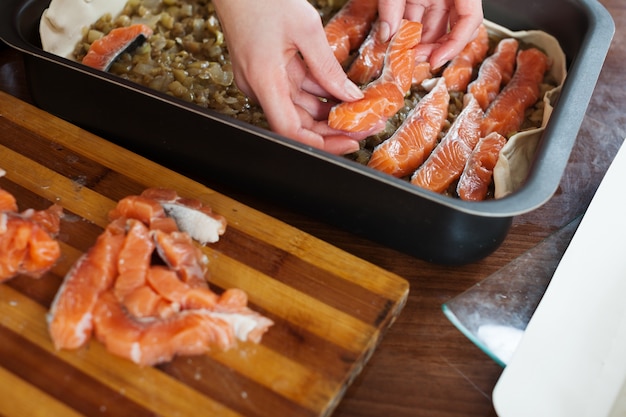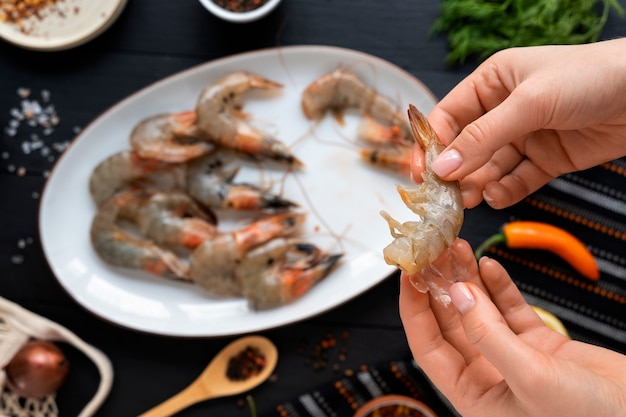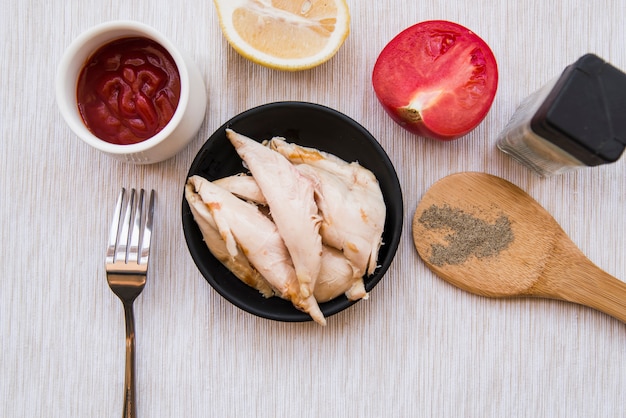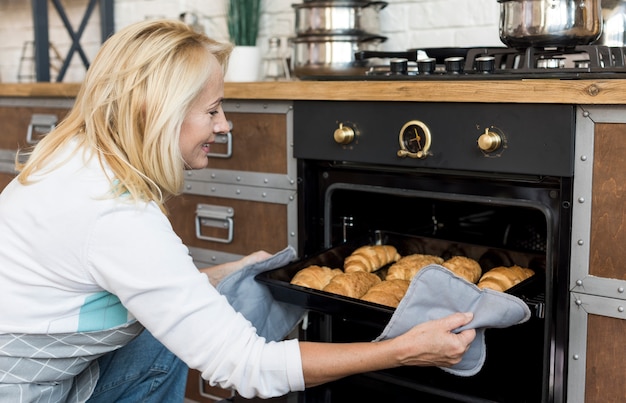(Part 1) - Choosing Your Crab Legs

Size Matters
Now, this isn't about being superficial, but when it comes to crab legs, size definitely matters. You'll see them labelled as 'jumbo,' 'colossal,' or even 'super colossal,' and let me tell you, bigger is usually better. Why? More meat! Plus, those larger crab legs tend to have a more intense, rich flavour.Freshness is King
Always, always go for fresh crab legs. They'll taste better, and you'll be supporting sustainable fishing practices. Look for legs with a bright, vibrant colour, especially in the shell. Avoid anything that smells fishy or has a dull colour, that's a sign it's not so fresh.Frozen vs. Fresh
There's a bit of a debate about frozen vs. fresh crab legs. Personally, I'm a fan of frozen. Why? They're often more readily available, especially in areas that aren't near the coast. Plus, the quality is usually great, and they're often cheaper than fresh. Just make sure they're properly frozen and stored.(Part 2) - Preparing Your Crab Legs

Defrosting
If you're using frozen crab legs, the first step is to defrost them. The best way to do this is slowly, in the fridge overnight. This gradual defrosting method ensures the meat stays juicy and tender. Never, ever defrost them at room temperature or in the microwave – this will dry them out and make the meat tough.Cleaning the Legs
Give your crab legs a good wash under cold running water. Remove any dirt, debris, or bits of ice that might be clinging to them. Make sure you get in between the legs and under the claws. You want those legs sparkling clean!(Part 3) - Cooking Methods

Steaming
Steaming is my personal favorite method. It's simple, fast, and preserves the natural, delicate flavor of the crab. You can use a steamer basket over a pot of boiling water, or even a large stockpot. Just make sure the water is boiling vigorously before you add the crab legs. Steam them for about 10-15 minutes, depending on the size of the legs.Boiling
Boiling is another quick and easy option if you're in a rush. Bring a large pot of salted water to a full rolling boil. Add the crab legs and cook for about 8-10 minutes. Boiling tends to give the crab legs a slightly saltier flavor, so adjust the salt in your water accordingly.Grilling
For a smoky, char-grilled flavor, fire up your grill! Preheat it to medium heat. Place the crab legs on the grill and cook for about 5-7 minutes per side, or until they are heated through and the meat is opaque. Be careful not to overcook them, as they can become tough.Baking
If you want to get creative and add some extra flavor, baking is a great option. Preheat your oven to 400°F (200°C). Place the crab legs on a baking sheet lined with parchment paper. Bake for about 15-20 minutes, or until the meat is cooked through. To elevate the flavor, you can add some butter, garlic, or herbs to the baking sheet before you put the legs in.(Part 4) - Serving Your Crab Legs
Your crab legs are cooked to perfection, now it's time to get those delicious claws on your table!Dipping Sauces
No crab leg feast is complete without a good dipping sauce. I'm a big fan of melted butter with a squeeze of lemon juice, it really enhances the natural sweetness of the crab. But don't be afraid to get creative! Other classic choices include garlic butter, cocktail sauce, and even a spicy sriracha mayonnaise.Crack That Shell
This is where you need a bit of muscle and some handy tools. You'll need a heavy-duty crab cracker to crack open those legs and claws. Be careful, those claws can be tough!Getting to the Meat
Once you've cracked the shell, you'll need to pull out the sweet, juicy meat. Use a crab fork or a small knife, starting at the thinner end of the leg and gently pulling the meat out. Don't be afraid to get messy! It's part of the fun.(Part 5) - Enjoying Your Crab Legs
Now you're ready to indulge in the deliciousness of your cooked crab legs. Take a bite and savor those sweet, succulent flavors.Pairing with Sides
Crab legs are delicious on their own, but they can also be paired with a variety of sides. I love serving them with a simple salad, some crusty bread for dipping into that melted butter, or even a bowl of creamy potato soup. The key is to keep the sides light and flavorful so they don't overshadow the star of the show, your crab legs!Saving Leftovers
If you happen to have any leftovers, store them in an airtight container in the fridge for up to 3 days. You can reheat them in the oven or microwave, but be warned, they won't be as good as freshly cooked.(Part 6) - Safety Tips
Alright, safety first, folks! It's important to handle crab legs safely to avoid any unpleasant surprises.food safety
Always wash your hands thoroughly with soap and water before and after handling crab legs. Use separate cutting boards for raw seafood and cooked food, and make sure your crab legs are cooked through.Shell Handling
Be careful when cracking the shells. Those claws are sharp! It's a good idea to wear gloves when handling crab legs, especially if you have sensitive skin.Allergy Warning
If you have a shellfish allergy, avoid crab legs altogether. They contain proteins that can trigger a serious allergic reaction.(Part 7) - Where to Buy Crab Legs
Ready to get your hands on some delicious Alaskan king crab legs? You have options!Seafood Markets
Seafood markets are a great place to find fresh, high-quality crab legs. They often have a wider selection than supermarkets, and you can talk to the staff about what's in season and how to choose the best legs.Supermarkets
Most supermarkets carry frozen crab legs, which are often more affordable and convenient. Check the freezer section for a good selection.Online Retailers
If you're looking for a specific type of crab leg or don't have a local seafood market, you can always order them online. There are a number of reputable online retailers that offer a variety of crab legs.(Part 8) - Some Crab Leg Facts
Let's get a bit more knowledgeable about these magnificent crustaceans.Alaskan King Crab
Alaskan king crab, also known as the red king crab, is the largest species of crab in the world. They can grow up to 11 pounds and have a leg span of up to 12 feet! That's one big crab!Lifespan
These impressive creatures can live for up to 20 years, and they can molt their shells up to 20 times throughout their lives! That's a lot of growing!Fishing Season
Alaskan king crab fishing season usually starts in October and ends in January. It's an exciting time for fishermen and seafood lovers alike!Fishing Techniques
Alaskan king crab are fished using special traps that are baited with fish. Once the crab are caught, they are sorted and processed.Sustainability
It's important to buy crab legs that are sustainably fished. Look for labels like the Marine Stewardship Council (MSC) certification, which indicates that the crab was caught using responsible fishing practices.(Part 9) - crab leg recipes
Ready to get creative in the kitchen? Here are a few recipe ideas to get your culinary juices flowing!Simple steamed crab legs
This is the classic way to cook crab legs. Just steam them until they're heated through, and serve them with melted butter and a squeeze of lemon juice. Simple, but delicious!Garlic Butter Crab Legs
For a more flavorful dish, try adding some garlic butter to your crab legs. Simply melt some butter in a pan and add a few cloves of minced garlic. Pour the garlic butter over the cooked crab legs and let it sit for a few minutes before serving.Spicy Crab Legs
If you like things hot, try adding some sriracha or hot sauce to your dipping butter. You can also add some red pepper flakes or cayenne pepper to the crab legs while they're cooking.Crab Legs with Pasta
For a more substantial meal, try adding crab legs to a pasta dish. You can use a simple tomato sauce or a creamy alfredo sauce. Just add the cooked crab legs to the pasta and toss everything together.Crab Leg Salad
For a light and refreshing meal, try making a crab leg salad. Simply combine cooked crab legs with your favorite vegetables, like lettuce, tomatoes, and cucumbers. You can also add a dressing of your choice.(Part 10) - FAQs
Q1: How do I tell if my crab legs are cooked?
Cooked crab legs will have a bright red color and the meat will be opaque. If the meat is still translucent, it needs to be cooked for longer.
Q2: What do I do if my crab legs are overcooked?
If your crab legs are overcooked, the meat will be dry and tough. There's not much you can do to fix it, but you can try to salvage some of the meat by picking it out with a fork.
Q3: How long can I store cooked crab legs in the fridge?
Cooked crab legs can be stored in the fridge for up to 3 days. Make sure they are stored in an airtight container.
Q4: Can I freeze cooked crab legs?
It's not recommended to freeze cooked crab legs. Freezing can cause the meat to become watery and tough. It's best to freeze them raw and cook them after they're thawed.
Q5: What other kinds of crab legs are available?
Aside from Alaskan king crab, you can also find snow crab legs, dungeness crab legs, and blue crab legs. Each variety has its own unique flavor and texture.
(Part 11) - The Verdict
There you have it! The ultimate guide to cooking alaskan king crab legs. Whether you're a seasoned chef or a newbie, this guide has everything you need to prepare a delicious and impressive meal. So, go out there, pick up some crab legs, and get cooking! You won't regret it! Trust me, the juicy, sweet flavour of Alaskan king crab is worth all the effort. Happy eating!Everyone is watching

Prime Rib Roast Cooking Time Chart: Per Pound Guide
Cooking TipsPrime rib roast. Just the name conjures images of lavish dinners, crackling fires, and hearty laughter. It’s ...

How Long to Bake Potatoes in the Oven (Perfect Every Time)
Cooking TipsBaked potatoes are a staple in my kitchen. They're incredibly versatile, delicious, and surprisingly easy to m...

Perfect Rice Every Time: The Ultimate Guide to Cooking Rice
Cooking TipsAs a self-proclaimed foodie, I've always been a bit obsessed with rice. It's the foundation of countless cuisi...

The Ultimate Guide to Cooking Asparagus: Tips, Techniques, and Recipes
Cooking TipsAsparagus. The mere mention of this spring delicacy conjures up images of vibrant green spears, crisp and burs...

Ultimate Guide to Cooking the Perfect Thanksgiving Turkey
Cooking TipsThanksgiving. Just the word conjures up images of overflowing tables laden with delicious food, the scent of r...
